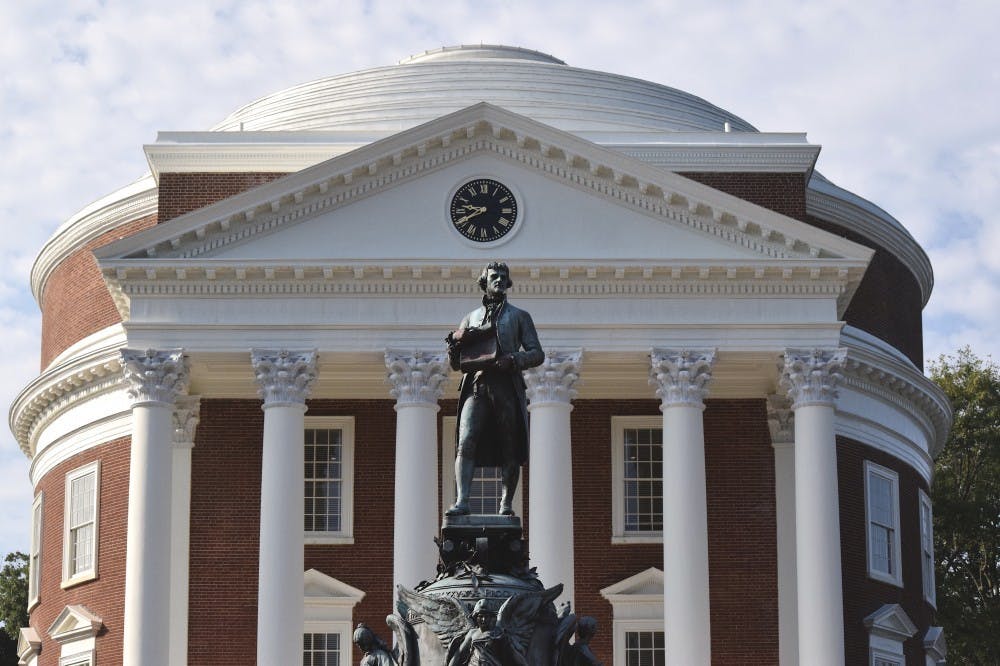A chapter of the conservative group Young Americans for Freedom is claiming that the University violated constitutional rights and state law as a result of the group being denied official recognition as a Contracted Independent Organization.
According to a letter sent to the University last week by the group’s attorney Casey Mattox, not recognizing YAF-UVA is a violation of Virginia law and free speech under the First Amendment of the U.S. Constitution. Student Council, however, previously claimed that YAF’s membership requirements were a violation of the terms and conditions for CIOs outlined in University policy.
In the letter, dated Dec. 15, Mattox, who is senior counsel and the director of the Center for Academic Freedom with Alliance Defending Freedom — a conservative advocacy organization that focuses on issues related to religious liberty — and YAF-UVA asked the University to give the group CIO status by Wednesday. They are also asking for the University’s nondiscrimination statement to be updated to include provisions in state law related to the rights of religious and and political student organizations.
Young Americans for Freedom, which operates under Young America’s Foundation, seeks to allow students to advocate for free enterprise through the conservative movement. Members would be required to adhere to the Sharon Statement, which outlines the conservative values which the group is founded upon. According to the University, organizations with CIO status cannot limit student membership based on political affiliation, which includes members recognizing the Sharon Statement as a requirement.
Ty Zirkle, a third-year College student and Student Council’s vice president for organizations, informed third-year College student and YAF-UVA President Kevin McMahon in a Nov. 5 email that the group’s membership requirements clashed with the University’s non-discrimination policy for CIOs.
University requirements on the Student Council website state that, “A student organization is ineligible for CIO status when the organization restricts its membership, programs, or activities on the basis of age, color, disability, gender identity, marital status, national or ethnic origin, political affiliation, race, religion, sex (including pregnancy), sexual orientation, veteran status, and family and genetic information.”
Student Council oversees and administers the CIO approval process. Benefits of becoming a CIO include reserving meeting spaces on Grounds and potential access to Student Activity Fee funding from Student Council.
In an email to The Cavalier Daily on Tuesday, University Spokesperson Anthony de Bruyn said that Student Council requested two constitutional changes submitted by the YAF in regard to the non-discrimination policy earlier in November. After Student Council received no response from the group, its CIO application became temporarily denied.
De Bruyn said that YAF’s CIO application has yet to be permanently approved or denied, and that the University has “carefully reviewed the concerns” which were raised by the students who wanted to make YAF a CIO.
“In November, after consulting with our Student Activities staff, Student Council had requested two changes to the constitution submitted by YAF, consistent with their reading of our non-discrimination policy,” de Bruyn said. “When no response was received, the YAF CIO application was temporarily denied pending future resolution of this open issue. The decision by Student Council was not viewpoint based, but rather based upon an error in applying the non-discrimination policy.”
De Bruyn also noted that the Student Council representative body never voted on YAF’s CIO application for final approval or denial. He said the University has requested Student Council “take steps to remedy this as soon as possible.”
When first contacted about this story, Zirkle declined to comment since the situation was being reviewed by the University. Zirkle did not return a request for comment on de Bruyn’s statement Tuesday evening.
It is currently unclear when Student Council will formally vote on the group’s CIO application, such as through a special session over winter break or as an agenda item at a meeting towards the start of the next semester in January.
In the letter, Mattox argued YAF-UVA's denial of CIO status was in violation of the First Amendment, which protects the rights of expressive associations, as well as the freedom to select members and leaders due to their adherence to the values of the organization.
“Public colleges and universities consequently violate the rights of students by requiring them to abandon their right to associate with persons who share their beliefs as a condition to receiving the government benefits associated with CIO status and accessing an otherwise open speech forum,” Mattox wrote.
In addition, Mattox also argued the situation violated Virginia law, specifically referring to a section of the Virginia Code which explains how a political student organization that organizes affairs and defines “the organization’s doctrines” are outlining the organization’s mission.
“On this ground alone, the decision to deny recognition to YAF-UVA was illegal,” Mattox wrote in the letter.
Dirron Allen, assistant dean of Students and director of student activities, declined to comment.
McMahon did not return a request for comment.







